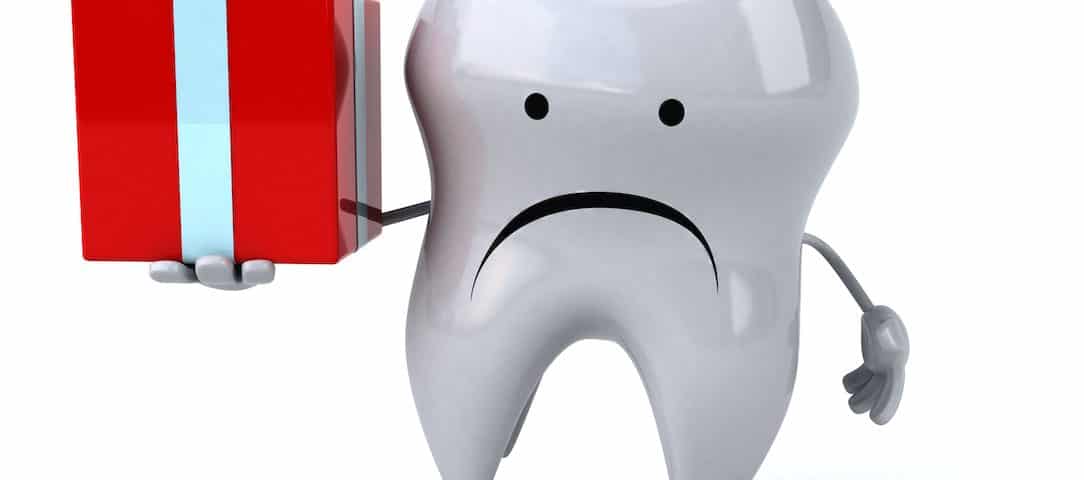Not So Merry & Bright: When Wisdom Teeth Need to be Removed

Protecting Your Teeth from the Sweet Christmas Treats
December 16, 2020
Start Your Year Off Right with Cosmetic Dentistry
December 31, 2020One of the most common dental procedures is wisdom teeth removal. These teeth are usually the last to come in, and can often shift teeth around and cause unwanted pain if not removed. Here is when your wisdom teeth can stay, or when they need to go.
What are the Wisdom Teeth?
Not all of your teeth come in while you are a child, in fact, a set of teeth don’t develop until you are around the ages of 17 to 21. Those teeth are known as the wisdom teeth, because they don’t develop until a more mature age.
Wisdom Teeth Issues
When your wisdom teeth erupt, it can cause problems with the rest of your mouth if they don’t have enough space to come through, or if they erupt in the wrong position. For some people, the teeth remain impacted, which means they don’t ever come up through the gums. When you begin to develop your wisdom teeth, the American Dental Association mentions that dentists look for signs of wisdom teeth:
- Not in the right position that allows food to become trapped, giving cavity-causing bacteria a place to grow.
- That is not coming in properly, which can make it difficult to floss them and the neighboring teeth.
- Which have only come in partially, which can give bacteria a place to enter the gums and create a place for infection to occur. It can also lead to pain, swelling, and stiffness in your jaw.
- That don’t have room to come in and can crowd or damage neighboring teeth.
- Which are impacted and risk forming a cyst near the impacted tooth. This can cause damage to the roots of nearby teeth or destroy the bone that supports the teeth.
If any of these things happen, removing your wisdom teeth might be necessary.
Why Most People Get Wisdom Teeth Removed
For many patients, wisdom teeth can cause pain. Due to this, they might need to be taken out. However, there are also other factors that can contribute to removal, like the ones we mentioned above. Signs that mean wisdom teeth removal is needed soon includes pain, infection, cysts, tumors, gum disease, tooth decay, and damage to nearby teeth.
If you are currently receiving orthodontic care, removing your wisdom teeth may need to be done as part of your treatment to ensure your teeth remain straight in their correct places.
Some people never have to remove their wisdom teeth because they don’t cause any issues for them at all. If this is you, it is important to keep these teeth as healthy as possible, flossing them each day and having your dentist keep an eye on them each time you have an appointment.
The Procedure
You can have your teeth taken out in one day, without needing to stay over night. When you come in for your appointment, if requested, you will receive sedation to prevent you from feeling pain during your procedure. From this point, and once you are numb, the dentist will begin to loosen your wisdom teeth and pull them out of your mouth. In some cases, the tooth might have to be broken up into smaller pieces for easier removal. Once complete, the dentist will usually stitch up the area and put gauze over the wounds to help with clotting.
Recovery
Once your teeth are removed, it is important to take things easy so you heal properly. Your dental team will discuss with you before your procedure on how to care for your teeth afterwards, but after care usually includes:
- Pain management. You may only need over the counter pain relievers, however, your dentist will typically prescribe a prescription pain medication to help. You can also use an ice pack on your jaw to help with swelling and pain.
- Eating soft foods. For the first day, it’s important to only eat soft foods. After this, you can try to incorporate semi-soft foods as your pain allows. Avoid anything hard, chewy, hot, or spicy that can irritate the wound.
- Cleaning your mouth. Do not brush your teeth, rinse, or spit, for 24 hours. You can resume brushing your teeth the next day, in most cases, as long as you are gentle when brushing near the wound.
- Not smoking for at least 3 days after, longer if possible.
Make an Appointment with Stonebrook Family Dental
If you believe it’s time to have your wisdom teeth removed, or if you just want them inspected, make an appointment with Stonebrook Family Dental today by calling us at (303)-872-7907.



